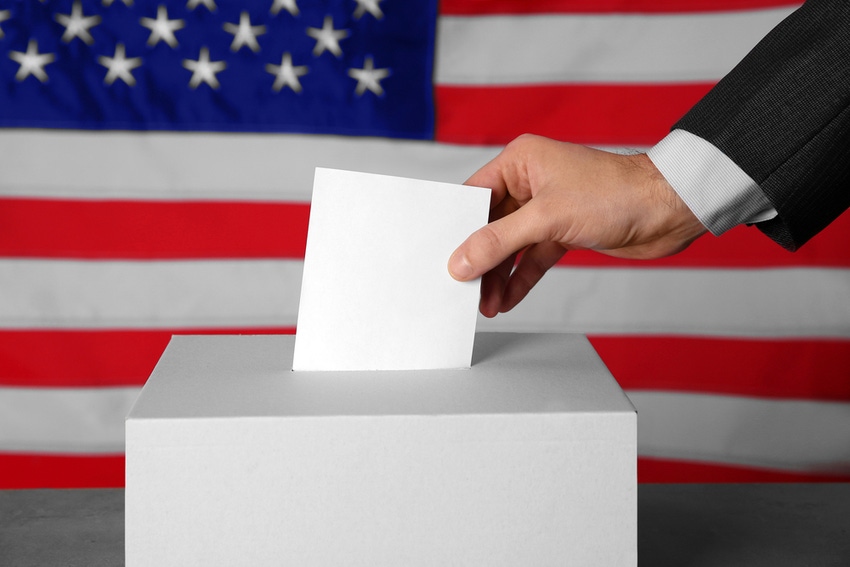Security partners need to help their customers improve souring voter confidence.
February 28, 2020

New research shows that American voters are plenty worried about election fraud this cycle.
A whopping 41% of Americans worry about voter registration tampering ahead of the 2020 presidential election, according to a new nCipher Security survey. But the country is split on who will be behind any election interference. Either way, MSSPs securing election processes and voting machines for government clients will need to step up their protection measures and potentially aid clients in reassuring the public.
Super Tuesday is a primary blockbuster event and voters fear election fraud is a top threat from that day forward in this highly contentious election cycle. According to the survey, more than one-third (38%) think a U.S. government official or one of the political parties will be the criminals behind jerry-rigging election outcomes. Another 37% think the culprits will be other countries like Russia or China.
Voting Machine and Process Fears
Voters believe security is not strong enough to protect the integrity of the vote and the democracy.
Thirty-seven percent said that the systems used for voting are antiquated and not secure.
Thirty-five percent prefer paper ballots, while 30% prefer electronic voting machines with paper backup records.
One in three Americans says they are less confident about the state of election security than they were in 2016.
But are these fears based more on public perception than machine reality? Are voting machines secure? Yes and no, says Roger Grimes, data driven defense evangelist at KnowBe4.

KnowBe4’s Roger Grimes
“For most of the history of voting machines they were more likely to contain multiple hackable flaws, some of them very easy to exploit for an experienced hacker. The last few years under intense scrutiny has made them far more secure. So, for the newer ones, most of the easy exploits are gone. But in general, what makes both the old and the new ones ‘secure enough’ is that they are fairly varied,” said Grimes.
Most security partners advise election officials to remain diligent in securing their election processes and voting machines.

KnowBe4’s Erich Kron
“There are few security professionals who truly believe that electronic voting machines are secure. To compound the problem, incidents like what occurred in the Iowa Democratic primaries have eroded even the trust of the public,” said Erich Kron, security awareness advocate at KnowBe4. “With no federal requirements for election security, we find that the oversight and testing of the devices that are used to determine what may be the most important event to happen in the US, the election of our president and congress, is left to only a couple of vendors whose primary goal is selling as many voting machines as they can,” Kron added.
The key to securing voting machines lies in understanding more than just who is likely to target them.
“Voting machines are another strong example of how the proliferation of smart IoT devices – with their inherent vulnerabilities – can affect any aspect of our lives. Most voting machines lack the security to manage today’s threats and pose a real threat to democratic processes,” said Natali Tshuva, CEO and co-founder of Sternum.

Sternum’s Natali Tshuva
“With billions of smart IoT devices coming to market now and over the next few years, relying on network security alone is insufficient, and all IoT devices must be developed with strong, embedded security that can combat evolving and unknown threats,” Tshuva added.
Public Mistrust Is Growing
A whopping 60% of Americans think that some states are more likely to experience election interference than others, primarily in …
… key swing states (nearly 32%). The breakdown by sections of states is:
8% — Southern states
4% — Northern states
13% — Midwest
16% — Western states
21% — Primary election states
6% — Washington, D.C.
Increasing voter worry leads to a sharp decrease in citizen trust for both the election process and the voting outcomes.
According to nCipher Security’s data:
Five percent of Americans will trust the 2020 election results.
Five percent are unsure if they’ll trust the results.
Seventeen percent won’t trust the election results at all.
The majority of Americans (more than 57%) won’t trust the election results if Trump wins.
Security partners may need to proactively work with their customers to help elevate trust levels by communicating to the voting public facts about security levels surrounding elections.
This is a tricky line to walk because divulging too much security information can help bad actors attack voter rolls, voting machines and vote counts. But considering where trust metrics stand now and that they may even drop further as election day gets nearer, something clearly needs to be done to address voter issues.
MSSPs may also be able to work with or point clients to the U.S. Election Assistance Commission (EAC) for additional guidance on addressing voter concerns and securing elections. And, guidance on building public trust can become another revenue stream for savvy MSSPs.
Read more about:
MSPsAbout the Author(s)
You May Also Like


